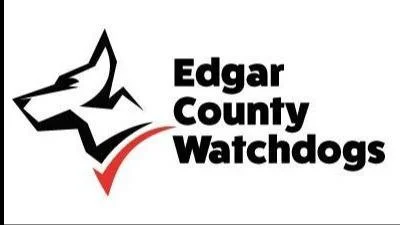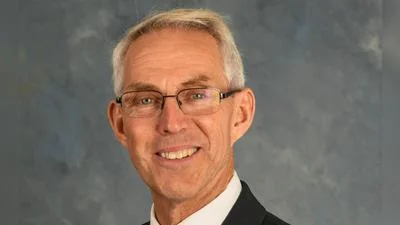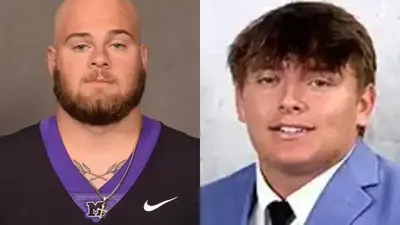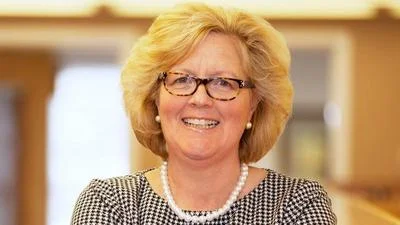Carle Richland Memorial Hospital issued the following announcement on June 13.
Ainsley Grace Kocher is a happy, giggly baby girl who loves to listen to music and dance, play with her older sisters, and most importantly, eat her snacks.
But when Ainsley was two-months-old, a simple Facebook post of her picture caused an occupational therapist and friend of Richland County mother, Brittania “Brit” Kocher, to help her raise some questions.
“I don’t want to alarm you, but has your doctor talked to you about the possibility of Ainsley having torticollis?”
Torticollis is a condition in which an infant’s neck muscles become tightened and shortened, causing them to tilt their head to one side and having extreme difficulty turning it to the other, which in Ainsley’s case was her left.
After a well-baby checkup at Jasper County Medical Center, Pediatric Nurse Practitioner Jamie Neimerg, confirmed the Kocher’s suspicions, triggering immediate concern from Ainsley’s mother.
“We knew it wasn’t life or death, but we were, of course, worried,” Kocher said. “We thought, you know, ‘Did we do something wrong? Are we laying her down wrong?’ And so, the next course was ‘Okay what do we do to help her with this?’”
It only took one referral to the CRMH Outpatient Rehabilitation Services Center to give Ainsley the care that she needed and to provide the Kocher’s with peace of mind.
From Day One, physical therapists like Whitley Houchin, Marti Waggoner, and Physical Therapist Assistant, Shay Farris did everything they could to make sure that Kocher was informed and included every step of the way.
“They always let me know what it was they were doing and what it was going to help with,” she said.
“And a lot of the times they even gave me printouts of the different exercises that they were doing so I could take it home and have the step-by-step on what to do there.”
Ainsley’s primary physical therapist at the Carle Richland Rehab Center, Whitley Houchin, says that babies like Ainsley are really fun to work with.
“The great thing about working with [Ainsley] was being able to see her hit her milestones and all the excitement of getting to where she needed to be and getting back on track and seeing the progress,” Houchin said.
Due to her inability to fully move her neck, Ainsley also developed a flat spot on the top of her head, medically known as plagiocephaly. This required her to wear a cranial helmet in order to help correct the skull shape. After finishing helmet therapy, Ainsley’s therapists had her focus more on neck stretching and other forms of physical therapy.
Even at times when Ainsley was struggling with her physical therapy, the therapists made sure she kept pushing through and never gave up on her.
“[The therapists] stuck with us through the helmet, Kocher said. “Once her helmet therapy was completed she was still on the slower end of some of her physical development, and so they stuck with us until I believe they felt that we felt comfortable with where she was at.”
Apart from providing medical support, the Rehab Center therapists also did everything they could in providing emotional support for Brittania as well.
“They were just very supportive of where she was developmentally,” Kocher said. “And there were several times where I’m like, ‘Guys, she’s never going to crawl! She’s never going to sit! She’s never going to- ‘and they said ‘Yeah, she will. She will. She’ll just do it when she’s ready.’ And that’s something that’s hard to hear as a mom.”
After working hard and pushing through, Ainsley was able to finish and graduate from physical therapy as of April 2018. Despite this however, Britannia knew that she would never be turned away from any concerns she had after-the-fact.
“I know that, even though our therapy is done, if I ever had a question I could call over here and they would be more than happy to talk with me and answer anything and walk me through something,” Kocher said. “And just knowing that, is awesome and I would never hesitate to contact and say, ‘This is a concern I have. What do you guys think?’”
When everything was said and done, the Kocher Family was very thankful for having access to this level of care locally and said that not having it would have obviously complicated things.
“When we started her helmet therapy, our first appointment for that was in St. Louis and for us it’s not as difficult but for some individuals in this area that don’t have the transportation and don’t have family support, I couldn’t imagine not having that availability here,” Kocher said. “It complicates things travel wise and then financially so just knowing that there is that service here is just a huge relief.”
Physical Therapist, Whitley Houchin, even went on to say:
“We are one of the main hospitals [in the area] that works with pediatrics,” Houchin said. “A lot of the surrounding areas don’t work with kids, so that’s why I think it’s crucial that we continue with this program.”
“It’s nice that we have a local spot that families have access to.”
To learn more about pediatric physical care and all that Carle Richland Memorial Hospital has to offer, please contact your health care provider or learn more online.
Original source can be found here.

Source: Carle Richland Memorial Hospital






 Alerts Sign-up
Alerts Sign-up